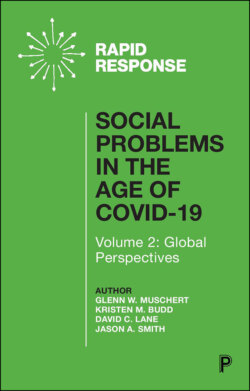Читать книгу Social Problems in the Age of COVID-19 Vol 2 - Группа авторов - Страница 15
На сайте Литреса книга снята с продажи.
Use a Survivor-centered Approach to Service Delivery when Working with Survivors
ОглавлениеAnother solution is to ensure that the services being provided to survivors are truly in the best interests of those impacted by human trafficking, and that services are adapted to meet unique needs that have arisen during the pandemic. Doing so will help to increase organizational effectiveness and thus make the best use of the limited resources with which organizations are working. Engaging in a survivor-centered approach, in which the needs and wishes of the survivor are prioritized and in which the survivor has control over their experiences and outcomes, has been found to be most effective. This allows the survivor to have agency over their experience working with service providers, rather than having decisions be made for them. When this is not done, services can at times be counterproductive. According to research conducted by the Office of Justice Programs, this is particularly true during cases in which the services provided to survivors are not considerate of the diverse needs of survivors and instead focus on punishment rather than healing.
Another aspect of using a survivor-centered approach is to consider intersectionality, in which the unique identities and social locations of each survivor are considered during service provision rather than using a one-size-fits-all approach. During the pandemic, individual factors such as socioeconomic status and family status may be especially relevant, as many of the increased risk factors for human trafficking relate to a lack of financial resources and a lack of family support. Race is another relevant factor to consider, as minorities have been found to be more vulnerable to the effects of COIVD-19. Service providers should pay close attention to how these factors may continue to impact survivors and their risk of experiencing further trafficking.
